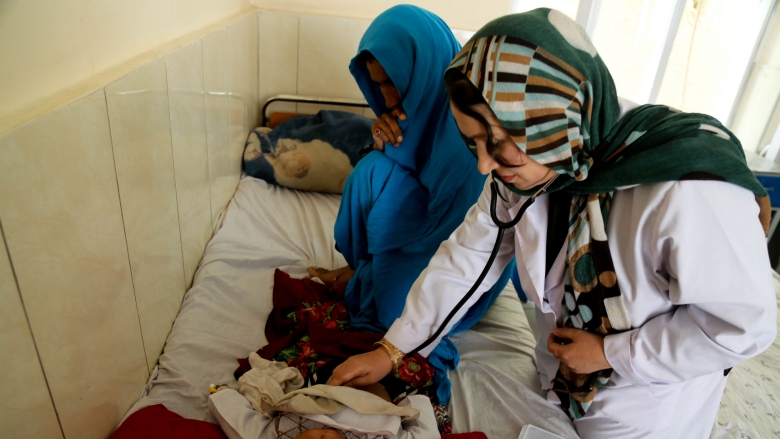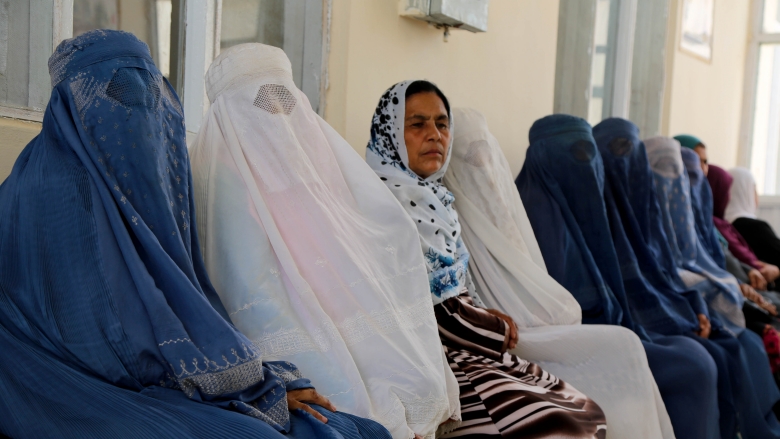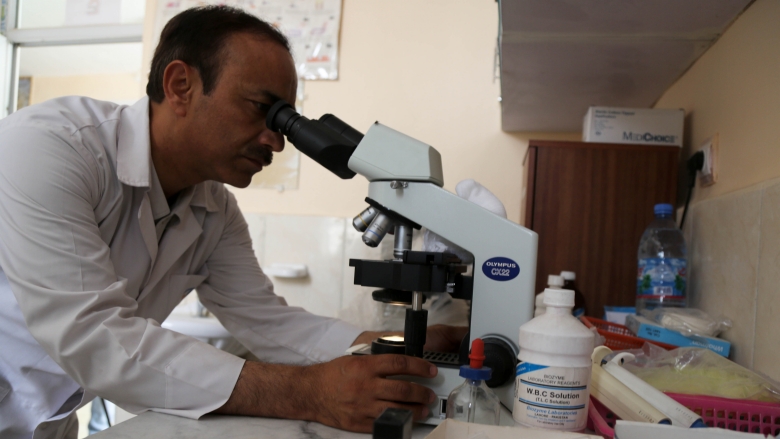DEHDADI DISTRICT, Balkh Province – The room is filled with women and men who have traveled from near and far to receive treatment. Even though it is so hot, in spite of ceiling fans running, that sweat is shining on their faces, they sit patiently in the waiting room of emergency services at Dehdadi 50-bed Hospital in Balkh Province.
Mohammad Rasul, 53, is one of the patients who have come to the hospital from Sheermast, a village in Dehdadi district. His traditional outfit, vest, and wrap as well as his long greying beard distinguish him from others. He decided to come to the district hospital to seek treatment after a health worker in his village told him of its good services. Dehdadi Hospital lies in
Dehdadi district in the central part of Balkh Province, about 15 kilometers from Mazar-e-Sharif. Rasul recalls the difficult times when there was no hospital: “One of our family members was due to give birth. The family was very poor and could not afford to travel to Mazar-e-Sharif city for delivery. For the safety of both mother and child, we, the neighbors, put some money together so that they could take the patient to a hospital in the city.”
Dehdadi Hospital is one of 90 health facilities in Balkh Province. Since January 2014, Dehdadi Hospital has been receiving support from the System Enhancement for Health Action in Transition (SEHAT) Program implemented by the Ministry of Public Health (MoPH), with support from the World Bank and Afghanistan Reconstruction Trust Fund (ARTF).
The SEHAT Program aims to expand the scope, quality, and coverage of health services provided to the population, particularly for the poor, across the country, and to enhance the Ministry of Public Health’s stewardship functions. The program supports the provision of a basic package of health services and an essential package of hospital services in both rural and urban areas. It also works towards strengthening the national health system and MoPH capacity at central and provincial levels, so it can effectively perform its stewardship functions.
Dehdadi Hospital, which employs 40 health professionals, covers a population of 150,000. The 24-hour hospital has four wards—pediatrics, internal medicine, surgery, and gynecology—where patients receive free treatment and medicines. It also has an emergency operation theatre and a 24-hour ambulance service. An average of one patient is operated on at the hospital in 24 hours.
“We receive over 200 patients every day, with 60 percent of them seeking outpatient services,” says Dr. Abdul Khaliq Azaraksh, head of Dehdadi Hospital. The hospital admits those with serious health conditions as inpatients.



